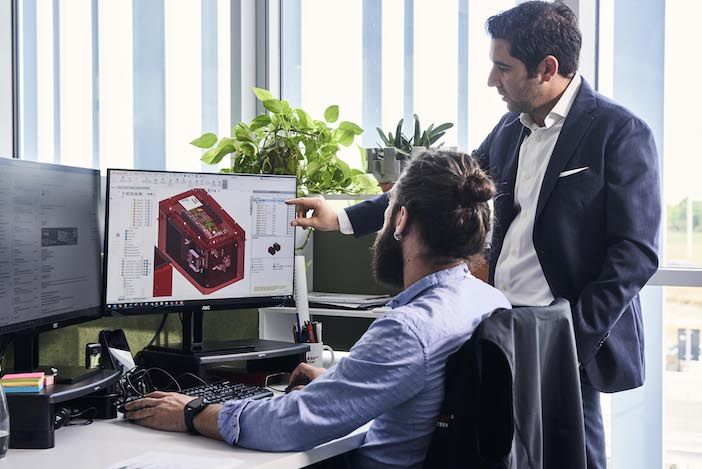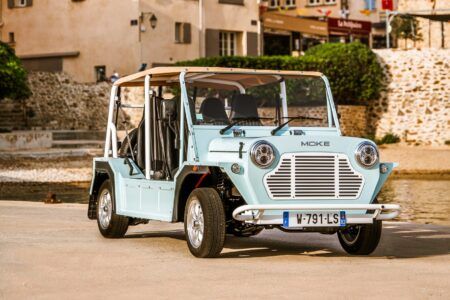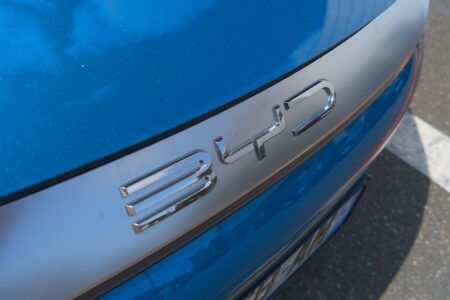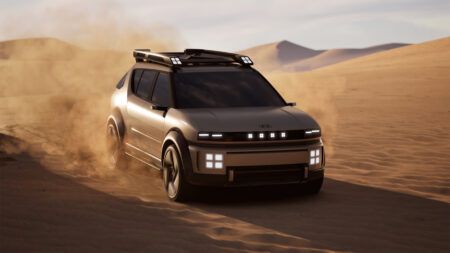In a thriving segment such as electrification, it is companies that offer experience, expertise and customisation that can assist OEMs with their unique technological challenges. This is the case with Flash Battery, a leading Italian manufacturer of lithium batteries for industrial machines and electric vehicles.
This decade is undoubtedly marked by the unprecedented development of new technologies in the field of electrification, especially when it comes to electric mobility. While the automotive industry is driving an increasingly sustainable transport sector, backed by recent European decarbonisation regulations, industrial electrification is also playing a major role in the implementation of a green economy with a minimum environmental footprint.
Driven by this paradigm shift, more and more OEMs in different segments of industry are in fact moving towards the switch from combustion engines to electric power for their vehicles.
When electrification of an industrial vehicle or an entire fleet of them is being considered, one of the first challenges that a technical engineer or director faces is choosing the right battery, the veritable beating heart of an electric vehicle. When it comes to batteries, our focus is naturally drawn to the type of battery which proves to be the most suitable for the industrial machinery and electric vehicles sector, namely the lithium battery.

The main reasons for choosing this type of accumulator can be grouped into five strategic factors: the first undisputed factor is the charging speed, followed by the high energy density, i.e. the ability to store a lot of energy in limited volume and weight (lithium batteries are, for instance, five times lighter than lead-acid batteries), the possibility of partial charges and discharges, which extend the life of the battery, the total absence of maintenance, which means no structural cost and, last but not least, an extremely long operating life, which in many cases even exceeds the very life of the vehicle on which it is installed.
Flash Battery, an Italian company based in Sant’Ilario d’Enza (RE) has been in the lithium batteries for industrial use business for more than 10 years, designing, producing and remotely monitoring customised lithium batteries for manufacturers of industrial machines and electric vehicles with medium production volumes and high tailoring requirements. Since 2012 Flash Battery has delivered over 200MWh in more than 15,000 applications across 54 countries around the world, producing over 500 different customised models and is currently the best-selling lithium battery in Italy, quickly conquering an ever-growing international market.
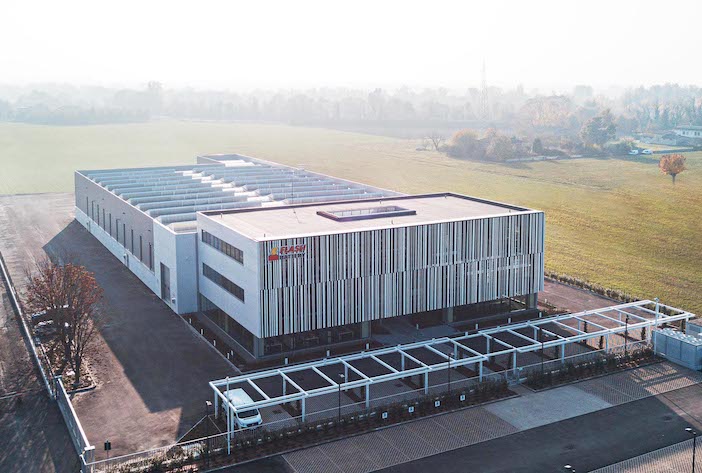
One of the brand’s main strengths is that it produces fully customised battery packs, which means it understands the needs of industrial vehicle manufacturers and, together with them, Flash Battery devises specific solutions to accommodate their actual needs, while respecting the space and footprint occupied by the vehicles, offering voltages and capacities tailored to the specific operating needs of each one. Indeed, each Flash Battery is designed according to an 8-step industrial process, during which all areas of the company work together towards a single goal: to achieve perfect battery-vehicle integration, enabling the battery to operate at its best, while providing added value in terms of performance and range.
To do this, the company (which currently employs 80 people with an average age of 35) puts the expertise of its R&D team, about 35% of the team, at the disposal of technicians and engineers, who work every day to respond to the evolution of an ever-growing industrial electrification market, offering customised lithium battery packs from 6 to over 300kWh.
This approach, combined with a focus on the industrial market, has enabled the Flash Battery to work alongside international players in the most diverse segments of industry over the years, from construction, to material handling, agriculture, aerial platforms and airport ground support equipment, not to mention automated logistics, one of the pioneering segments in the technological transition of lithium batteries.
In addition to customisation, what has allowed Flash Battery to make a difference in industry has been its proprietary technology. The three pillars underpinning Flash Battery in making an efficient and reliable lithium battery are: the most appropriate chemistry choice to accommodate industry demands, smart control electronics for maximum battery efficiency and a real-time remote control system for predictive and automatic maintenance.
For all its batteries, Flash Battery has in fact focused on LFP chemistry, lithium-iron-phosphate (LiFePO4), which, due to its inherent characteristics of high safety, stability and availability in large capacity formats, proves to be the most suitable for the needs of the industry. This, combined with high-performance control electronics, ensures that Flash Battery lithium batteries achieve more than 4,500 life cycles.
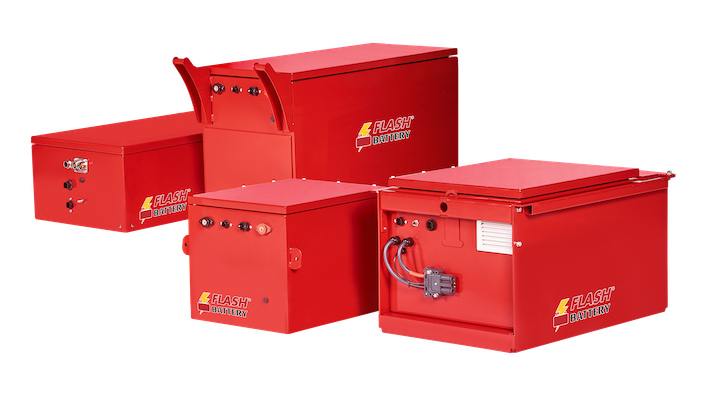
These control electronics have a name and are patented, namely the Flash Balancing System, which is Flash Battery’s proprietary BMS (Battery Management System), the veritable brain of the battery, already patented in Italy and now pending international patent, capable of carrying out countless activities, from balancing the battery pack to smart management of the safety and range of the whole electric vehicle. What are its special features? The Flash Battery balancing system was developed to act on each individual cell, through combined high-power balancing, in both active and passive mode, with a current at least 20 times higher than conventional BMS (20A). This allows for short and predictable charging times (balancing time under 30 minutes and full charging in just 2 hours), ensuring maximum run time for lithium batteries as well as zero maintenance costs for the entire machine.
The third differentiating aspect of the company’s technology, which is a major ally in terms of reliability and performance, is the Flash Data Center, the automatic real-time remote data control software, which has been accompanying the evolution of Flash Battery lithium batteries since 2013. The Flash Data Center monitors, 24/7, the state of health of each and every one of over 15,000 Flash battery lithium batteries in operation all over the world, running self-diagnostics and predictive maintenance, enabling false alerts and faults to be nipped in the bud and consequently minimising maintenance costs while increasing machine productivity.
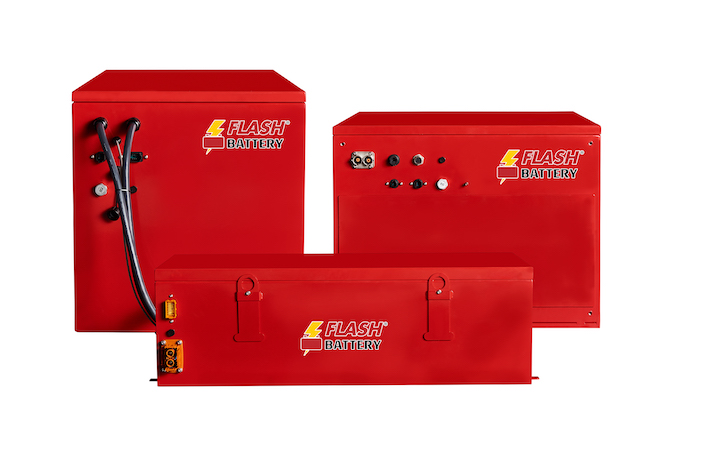
The latest software release, released in October 2022 at Bauma, has been further enhanced with the latest Artificial Intelligence and Machine Learning techniques, which in addition to enabling the system to constantly learn, store and process operating information, extract from the battery itself an accurate description of how the battery is behaving. All OEMs and producers who rely on Flash Battery technology will therefore be able to perform advanced analysis of the big data from their battery systems in real time. This translates into in-depth insights of how the industrial machinery and vehicles fitted with Flash Battery lithium batteries are being used (actual charging/discharging time, average consumption, temperatures reached, days of use, etc.). This is also useful for the company itself, since by predicting how a battery will behave in the future, it can study new generations of increasingly smart batteries.
Innovation, customisation and research and development are therefore the three great pillars that have enabled Flash Battery to carve out a major place in the emerging sector of lithium batteries, with an industrial focus that in just 10 years has opened the doors of international markets. This is partly thanks to the brand’s ability to set up a network of prestigious international partnerships with powertrain system integrators active in major European countries geared towards energy transition and thanks to whom it can market a turnkey, finished product that is industrialised in every respect. This combination of factors will help rank the Italian company as one of the leaders of the energy transition in the years to come, which we hope will involve an ever-increasing number of sectors and applications.


